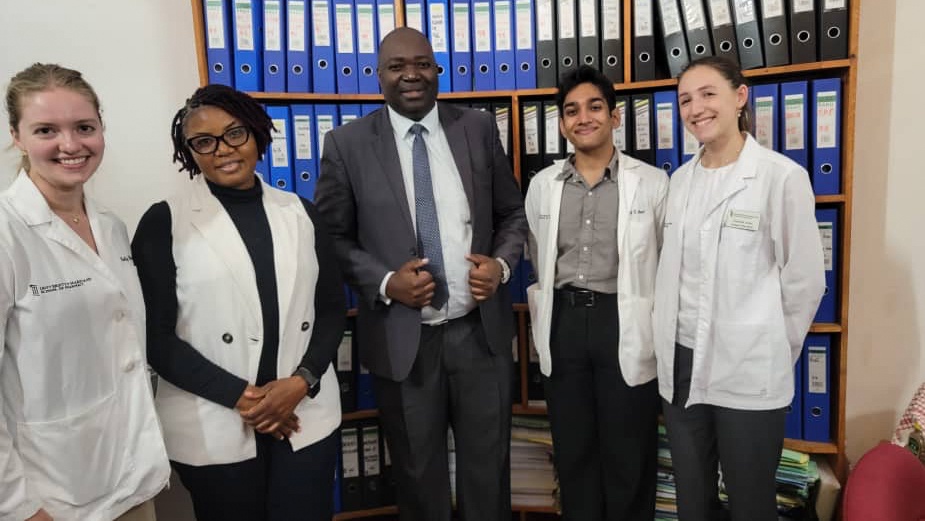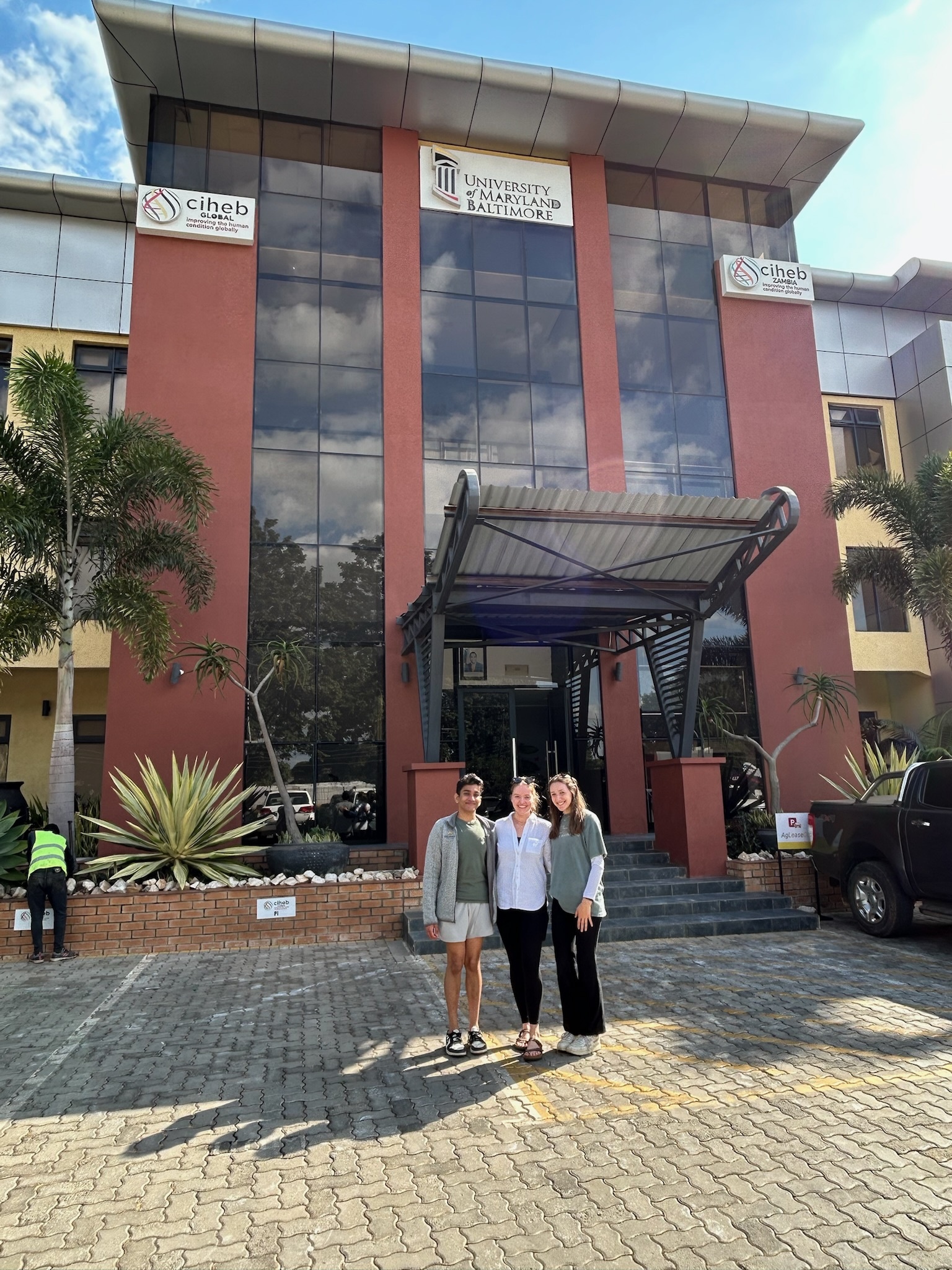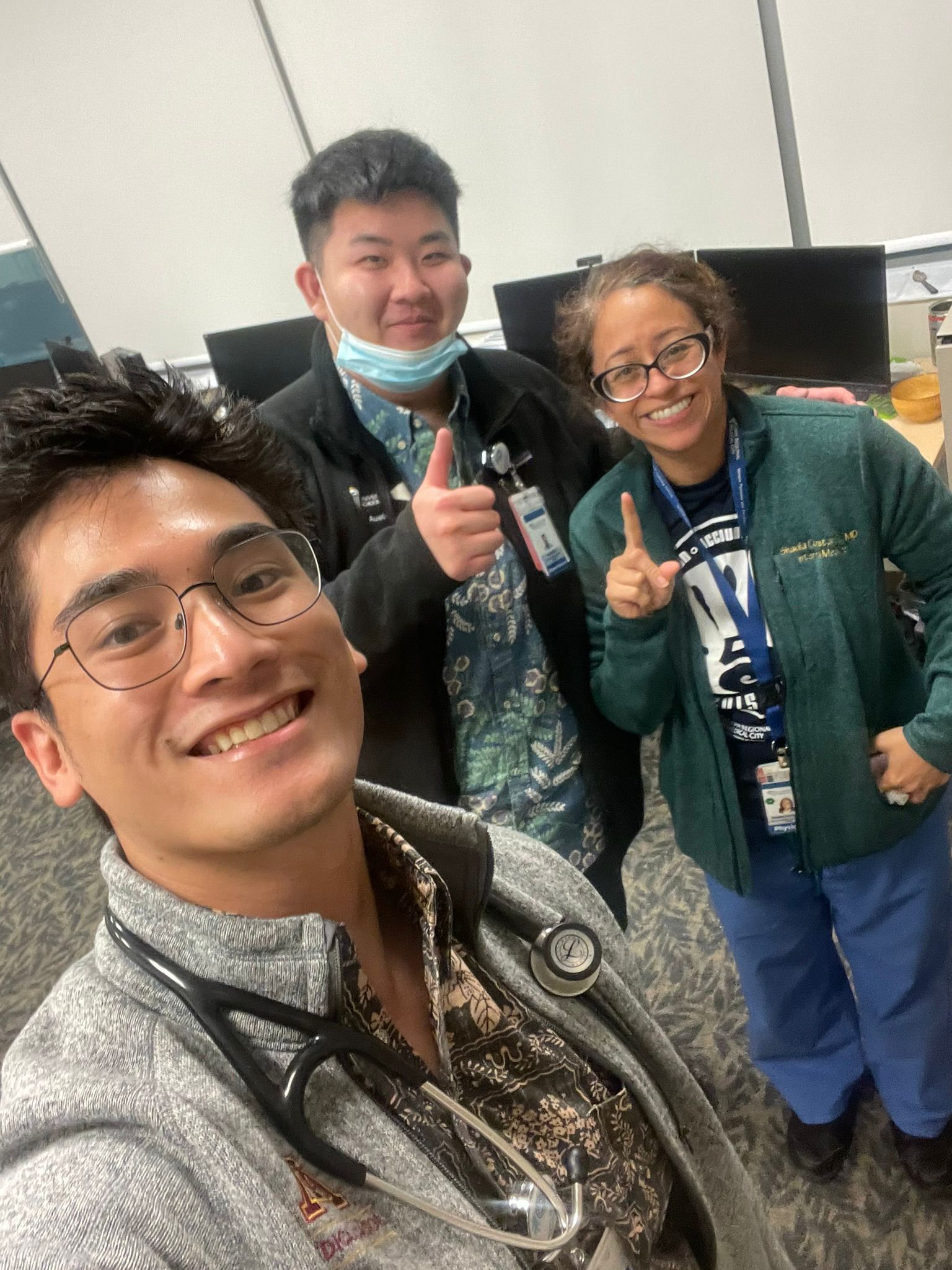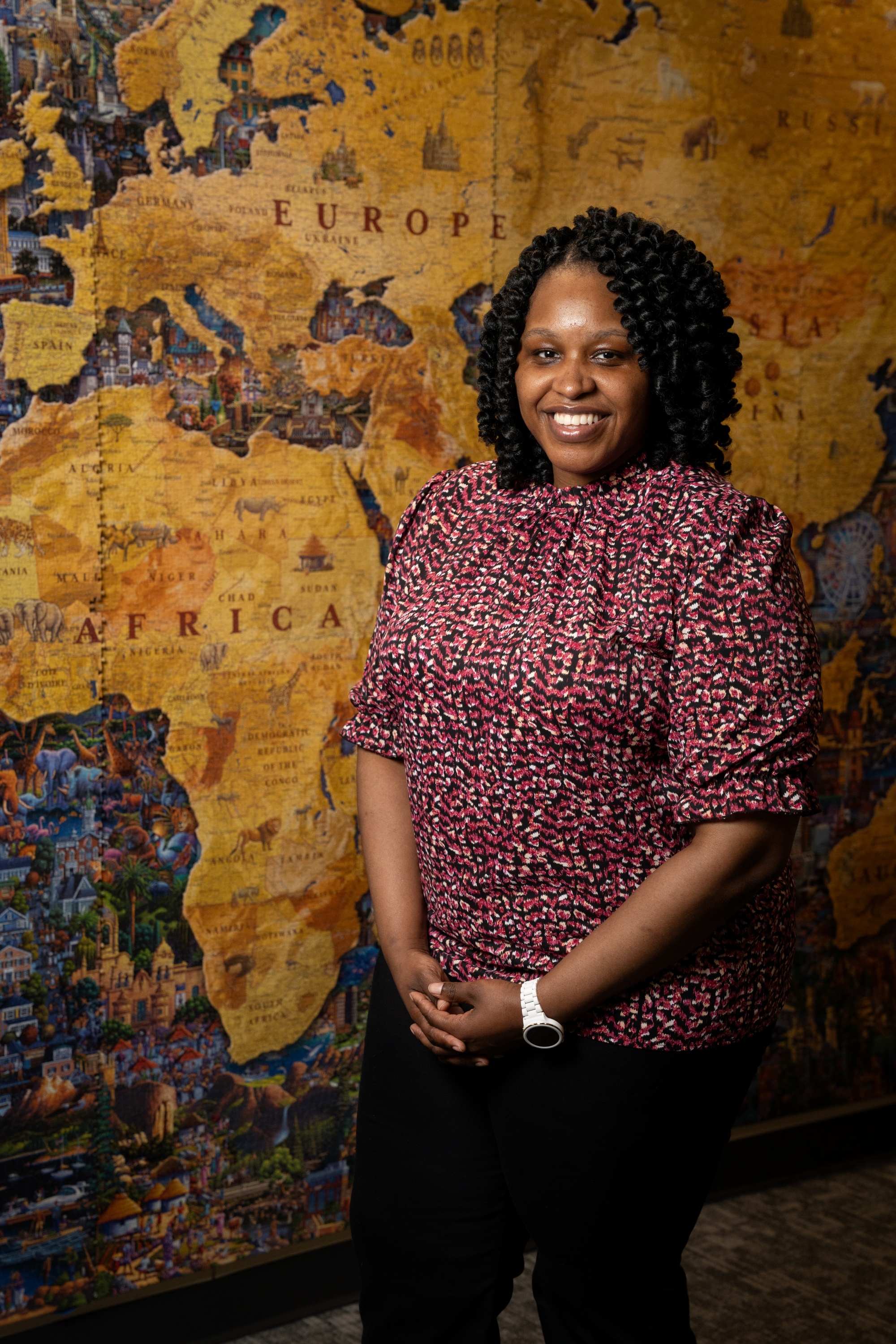
When Vraj Patel, a fourth-year PharmD student at the University of Maryland School of Pharmacy (UMSOP), traveled to Zambia, Africa, he spent four weeks at the University Teaching Hospital getting hands-on experience in a health care system that, in many ways, was quite unlike his own.
But what wasn’t different was the care and compassion needed to gain patients’ trust when treating them.
In Zambia, a lot of medications are packaged in blister packs, Patel said. Some of the biggest outliers are HIV medications, which are packaged in pill bottles. And pill bottles audibly rattle in pockets and bags.
“There’s a stigma around hearing a pill rattling in someone’s bag. And so, when patients would come in, they would ask you to really pack in cotton rounds and pieces of newspaper, so … if they were walking on the street, or if they had family members that live with them, they wouldn’t hear those pills rattling,” Patel said.
“That served as a reminder that even in Zambia and in America, there is going to be stigma around any disease state, and we as pharmacists are trusted to keep that confidentiality and hold our patients’ trust.”
Patel’s international rotation last spring allowed him to explore multiple areas in pharmacy including inpatient cardiology and infectious diseases outpatient management of pediatric cancers and HIV. That rotation in Zambia is just one of more than half a dozen partnerships UMSOP has across the globe.
The school has partnered with universities in multiple parts of the world, including Australia, Egypt, Italy, South Korea, Thailand, and Zambia. And it’s only growing.
“Hardly a month goes by without the Experiential Learning Program [ELP] office receiving a new inquiry from a university abroad, eager to establish a formal agreement or explore opportunities for collaboration and exchange,” said Mojdeh S. Heavner, PharmD, BCCCP, FCCM, FCCP, assistant dean for experiential learning and professor in UMSOP’s Department of Practice, Sciences, and Health Outcomes Research (PSHOR). UMSOP has an established international presence, and institutions are eager to work with the school, she added.
These global rotations provide students with hands-on experience in parts of the world often very different than the United States. The opportunities allow students the chance to think on their feet, understand how to work when there is disparity, and learn how to treat patients from different demographic, educational, and socioeconomic backgrounds.
Patel’s work in Zambia taught him about foundational pharmacy — the experience was a refresher on baseline pathophysiology of disease states for him and his fellow classmates.
But more than that, it allowed him to see how connected public health is.
“Just getting any global experience at all will remind you that our health system is a part of something bigger,” Patel said. “We always think about us first, but we never think about the impacts that global policies have outward.”
Creating Ambassador Program

The School of Pharmacy is in the development process to expand these types of global experiences for students, said Emily Heil, PharmD, MS, FIDP, BCIDP, AAHIVP, a professor in PSHOR and global health liaison in ELP.
UMSOP is working to create a Global Ambassador Program. Students interested in global health would be able to take an interprofessional elective developed in partnership with other schools at the University of Maryland, Baltimore.
“Our vision would be that third-year pharmacy students would take that elective, and then they would pursue an international practice experience in their fourth year,” Heil said.
“And this would carve out an opportunity to learn a little bit more about global health interprofessionally, before they go and do an actual global health rotation where they have the opportunity to practice as student pharmacists in different countries, and get a better appreciation for what health care — and specifically the role of a pharmacist — looks like across the world,” Heil added.
For Patel, his time in Zambia was a reminder that regardless of where in the world they’re practicing, a pharmacist’s role often is as an educator.
“Our training involves a lot of education — whether that’s educating the patient or educating health care providers — we’re just taught to be teachers,” Patel said. “And because this rotation was very patient-facing — we spent a lot of time in the outpatient HIV clinic — that was direct patient contact I think would benefit any pharmacy student who wants to gain hands on-experience of being able to learn how to teach through experience.”




